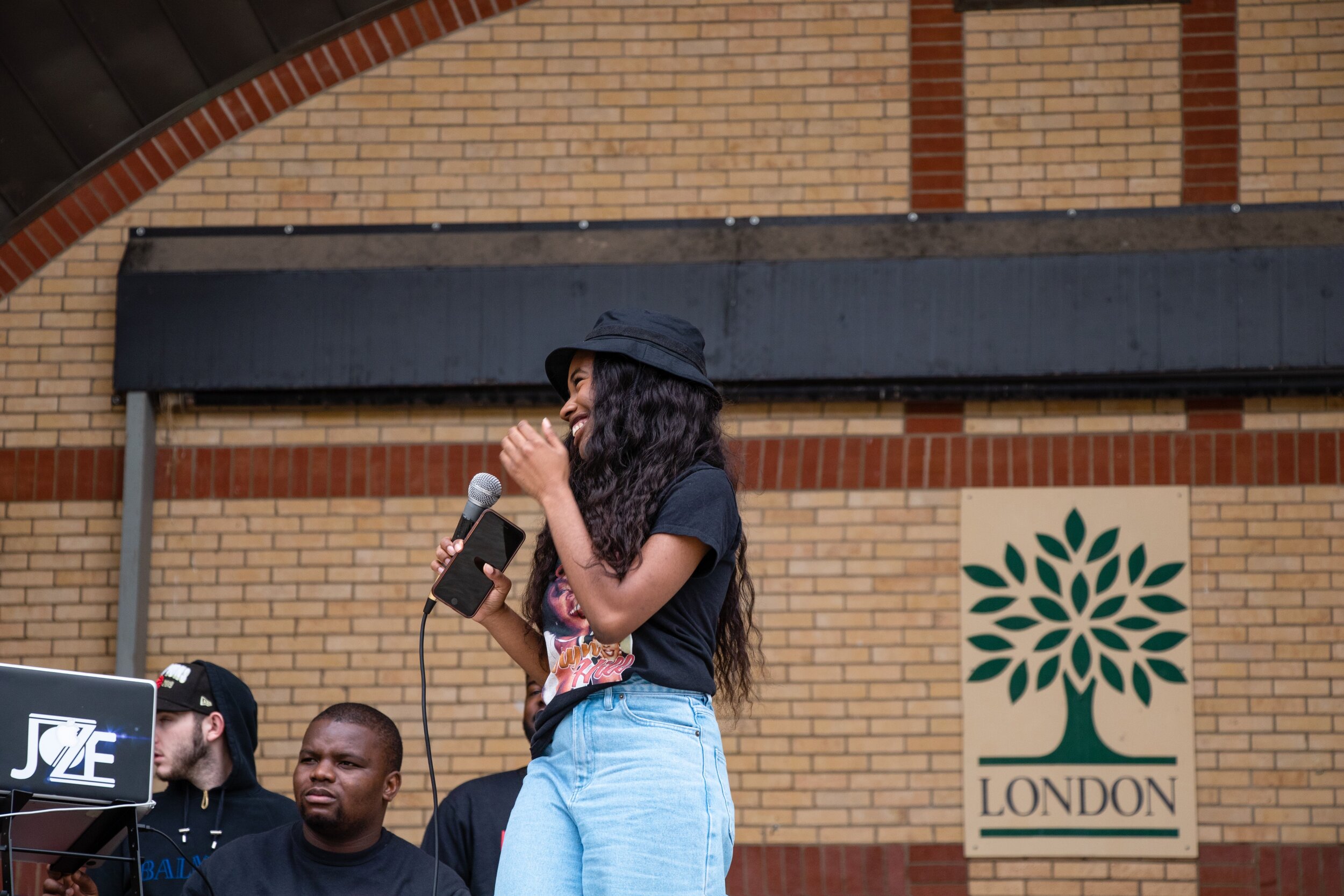Slam poet Fauzia Agbonhin unpacks the capacity of art and poetry to make a societal impact in a world in need of change.
By, Sama Nemat Allah
Fauzia Agbonhin, a 19-year-old author and spoken word artist. (Courtesy of Fauzia Agbonhin)
In May of 2020, amidst the resurgence of Black Lives Matter protests and the radical re-imaginings of the justice system, Fauzia Agbonhin posted a spoken word poem on her Instagram account. Entitled Ode to the black boys who died to make hip hop happen, the poem was an elegy that served to lament the pervasive loss of Black and Indigenous lives at the hands of police officers:
“When the city loves a Black man, the city allows people to draw him on street corners and in homes he’s never stepped foot in./
They turn his death into a hymn, into a line on a piece of paper/
So we can digest it and pretend we have addressed it.”
“When the city loves a Black man, they will remember nothing about him except how he died.”
(Excerpts from Fauzia Agbonhin’s poem, “Ode to the black boys who died to make hip hop happen.”)
The video had garnered over 18,000 views, amassing a widespread audience for the artist based in London, Ont.
“I wrote it during the BLM revolution in the summer of this year,” said Agbonhin, an award-winning spoken word creative and author. “Every time I opened social media, there were Black people dying. It was so overwhelming.”
Activist Agbonhin noted that a driving force behind the inception of the viral poem was seeing non-Black social media users posting the death and trauma of Black people without using trigger warnings. She said that actions of that nature were rooted in performative allyship that “harmed more than it helped.”
“It made me so angry that people couldn’t understand,” said Agbonhin in a phone interview. “So one day, I just sat down and wrote and wrote and wrote…I’m glad that it touched people that way that it did but I couldn’t help but feel upset that this was the poem, and this was the time, and this was the moment.”
However, Agbonhin’s pursuit of her poetic practice goes much further back than this summer. It began as early as the second grade when she’d persistently cease chances to turn an everyday academic undertaking into a work of art. What drew her to poetry was something simple; rhyming.
“If you notice, all my poems rhyme. It’s very rare that I have poems that don’t have rhyme as one of the major literary devices. Lyrically and auditorily—listening to rhymes gave me a satisfaction that I can’t even quantify so I just loved creating them.”
Growing up in suburban Mississauga, Agbonhin was confined to performing her poetry within her high school and in local cafes. In her senior year, her family relocated to London, Ont., a move that she asserts was a watershed moment in her trajectory to becoming a nationally-recognized writer and performer.
Fauzia Agbonhin performs her spoken word poetry in a Black Lives Matter London, Ont. event, in September 2020 (Mika Soetaert).
“Somebody discriminating against me because of my religion; somebody discriminating against me because of my Blackness; somebody discriminating against me because I’m a woman. I experienced all those things when I came to London.”
“My art really became a career pathway when I was able to use it as an outlet for the trauma that I’d experienced.”
However, Agobonhin is more than just a spoken word artist; she’s also an artist that creates written poetry that, as she notes, “is meant to be read.” It sits in contrast to spoken word poetry which does not follow grammatical rules or structural conventions and is meant to be performed.
“When you read, not perform, a spoken word, it sounds weird because that’s not the medium it's meant for,” she says.
In December 2019, Agbonhin released her debut book I Never Truly Hated You, an amalgamated collection of poems divided into four chapters: creation, death, healing, and metamorphosis. The book explores the author’s poignant journey growing up as a visible minority in society. Guided by historical injustices, her book examines the systemic structures of racism, sexism, and xenophobia through an anti-oppressive lens.
“The reason why I named this book I Never Truly Hated You is because it’s a tribute to my younger self. It’s a tribute to me growing up with so much internalized hatred for everything about me.”
When asked why she employs art as a means of activism, Agbonhin said that her creations are rooted in a need to take action.
“I create poetry when I feel like I can’t do anything else but write. My art is my contribution. Sometimes I feel like it’s a really small contribution but on days like the death of George Floyd...I feel so powerless and this is how I’m trying to do something to change something.”


